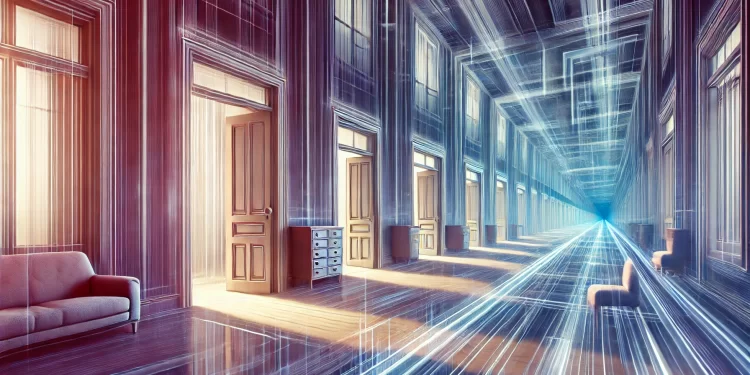Have you ever walked into an unfamiliar room and felt an eerie sense of familiarity? Or heard someone speak and thought, “I’ve heard this before,” even though it’s impossible? This strange phenomenon, known as déjà vu, has puzzled humans for centuries. While it remains mysterious, scientific insights are beginning to unravel its purpose—and its connection to the brain’s incredible ability to process memory and reality.
What Is Déjà Vu?
Déjà vu, French for “already seen,” describes the unsettling sensation of reliving a moment that’s entirely new. It’s a fleeting, spontaneous experience that bridges the gap between what you feel and what you know. According to Dr. Akira O’Connor, a psychologist and senior lecturer at the University of St. Andrews, this phenomenon provides a rare glimpse into the intricate workings of consciousness.
The key to understanding déjà vu lies in how the brain processes familiarity. Certain regions of the brain, particularly those responsible for recognizing patterns and recalling memories, can sometimes misfire. This “twitch” sends a false signal of recognition, creating a brief conflict between your present perception and the sense that you’ve experienced it before.
Dr. O’Connor explains that this mix-up is actually a sign of healthy brain function. The frontal lobes, responsible for critical thinking and fact-checking, detect the error and ensure you don’t act on the false memory. “Déjà vu is the process of correcting that error and making sure you don’t act as though you remember that thing,” he says. This correction mechanism underscores the brain’s resilience, even when it glitches.
Interestingly, déjà vu may be most common when the brain is functioning at its best. For individuals with conditions like dementia, however, the frontal lobes may struggle to separate real memories from false ones. This can lead to repeated sensations of familiarity that disrupt everyday life. Such cases highlight how déjà vu’s underlying mechanisms play a role in diagnosing and understanding neurological health.
Déjà Vu and Memory Retrieval
One prominent theory suggests that déjà vu arises from how the brain retrieves and organizes memories. A familiar cue, such as entering a room, might inadvertently trigger a memory recall process. However, without actual content to match, this creates a sensation of familiarity without substance.
A groundbreaking study used virtual reality to investigate this phenomenon. Participants explored everyday environments, such as gardens or bowling alleys, and were later shown new spaces that resembled the earlier ones. These spatial similarities often induced déjà vu, confirming that memory errors can cause the uncanny feeling of familiarity—even without direct recollection of the original memory.
While déjà vu may feel unsettling, it’s also a testament to the brain’s innate drive to make sense of the world. “It tells us that we are sense-making machines,” says Dr. O’Connor. “We spot patterns and try to understand why things are happening.”
Ultimately, déjà vu might just be a harmless side effect of our brain’s tireless effort to interpret and rationalize the world around us. It’s a fleeting glitch that reminds us of the incredible complexity of our minds—and once we notice it, we simply carry on.
Why Do We Experience Déjà Vu?
The truth is, there’s no definitive answer. Déjà vu might not serve a practical purpose at all. Instead, it could simply be a byproduct of the brain’s constant attempts to align perception, memory, and reality. Whatever the cause, this phenomenon continues to intrigue scientists and laypeople alike, offering a unique window into the marvels of human cognition.











